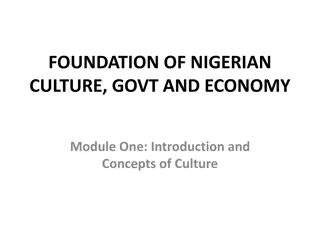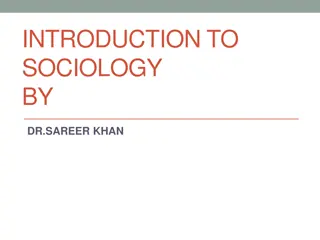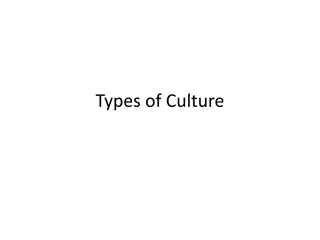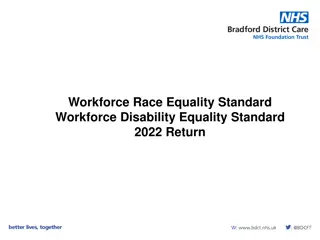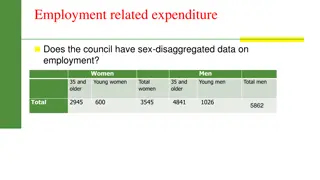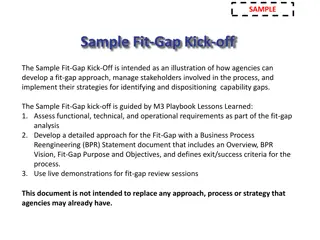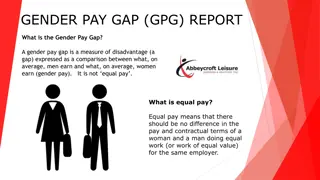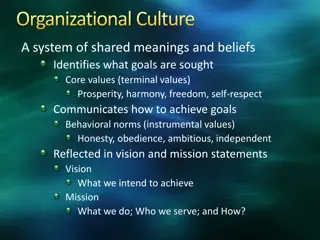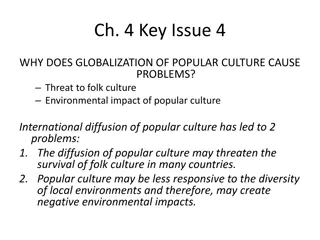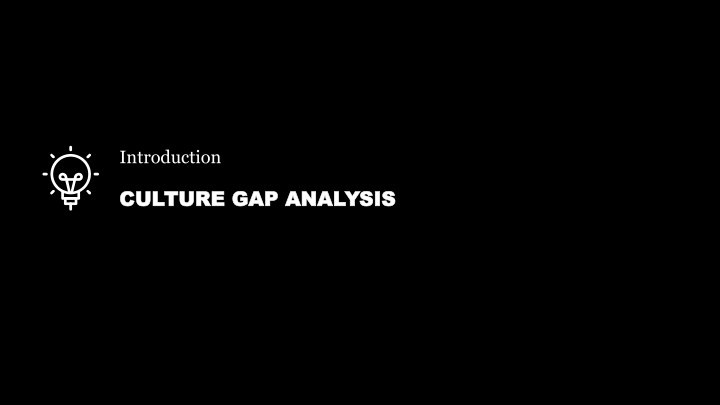
Unlocking Cultural Alignment for Circular Business Models
Discover how the Culture Gap Analysis tool can help assess and bridge cultural gaps within your organization to support the adoption of circular business models. Learn to identify relevant cultural aspects, assess maturity levels, and plan engagement activities effectively.
Download Presentation

Please find below an Image/Link to download the presentation.
The content on the website is provided AS IS for your information and personal use only. It may not be sold, licensed, or shared on other websites without obtaining consent from the author. If you encounter any issues during the download, it is possible that the publisher has removed the file from their server.
You are allowed to download the files provided on this website for personal or commercial use, subject to the condition that they are used lawfully. All files are the property of their respective owners.
The content on the website is provided AS IS for your information and personal use only. It may not be sold, licensed, or shared on other websites without obtaining consent from the author.
E N D
Presentation Transcript
Introduction CULTURE GAP ANALYSIS CULTURE GAP ANALYSIS
INTRODUCTION Culture gap analysis Culture gap analysis The culture gap analysis tool supports you in analysing how your current company culture supports the adoption of circular business models, and in identifying activities to bridge identified culture gaps. Purpose Illustration of the tool 1. Write down company-level cultural aspects (values, mindsets, behaviours) you think are relevant for the circular business model you consider 2. Assess your maturity level in those cultural aspects 3. Summarise key planning and engagement-related activities that are required to bridge the identified culture gaps in your organisation Instructions Chapter 5: How to design the transformation journey? Supporting materials Examples of cultural aspects supporting circularity Key building blocks of culture Illustrative playbook pages please refer to the entire chapter for support. 2
EXAMPLE Culture gap analysis Culture gap analysis Example behaviour: Apply circular design criteria Example value: Customer- centricity Example Example mindset: Repairing a product or component is better than producing a new one Example planning-related activities: Identify change management lead/champion Develop future-state vision of company culture Plan culture change programme, including key activities and milestones Example engagement-related activities: Start internal communications around change programme Organise kick-off event Conduct regular status update sessions Develop supporting incentives 3
Tool CULTURE GAP ANALYSIS CULTURE GAP ANALYSIS
Culture Gap Analysis (1/2) 1. Write down company-level cultural aspects (values, mindsets, behaviours) you think are relevant for the circular business model you consider 2. Assess your maturity level in those cultural aspects. Values Maturity level Mindset Maturity level Behaviours Maturity level Example: Sustainability Example: Things that increase client value are prioritised Example: Share know-how and experience across functions Not lived in company Partly lived At core of culture Not lived in company Partly lived At core of culture Not lived in company Partly lived At core of culture
Culture Gap Analysis (2/2) 1. Write down planning and engagement-related activities that are required to bridge the identified culture gaps in your organisation. What activities are required for planning the culture change in your organisation? What activities are required for engaging your organisation in the culture change?

